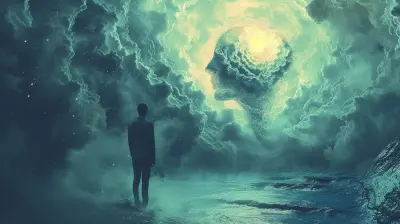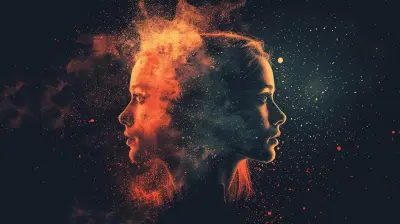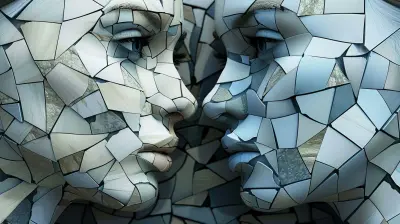How Social Media Can Worsen Depression
30 September 2025
Social media, oh that glittering maze we scroll endlessly through — where filters reign and likes feel like little heartbeats of validation. But beneath those glossy selfies and viral videos, something darker often stirs. Ever felt down after scrolling through everyone's "perfect" lives? You're not alone. Social media isn’t just a time-thief anymore; for some, it’s also a soul-drainer. Let’s unravel how this digital world, designed to connect us, can sometimes pull us deeper into the lonely layers of depression.
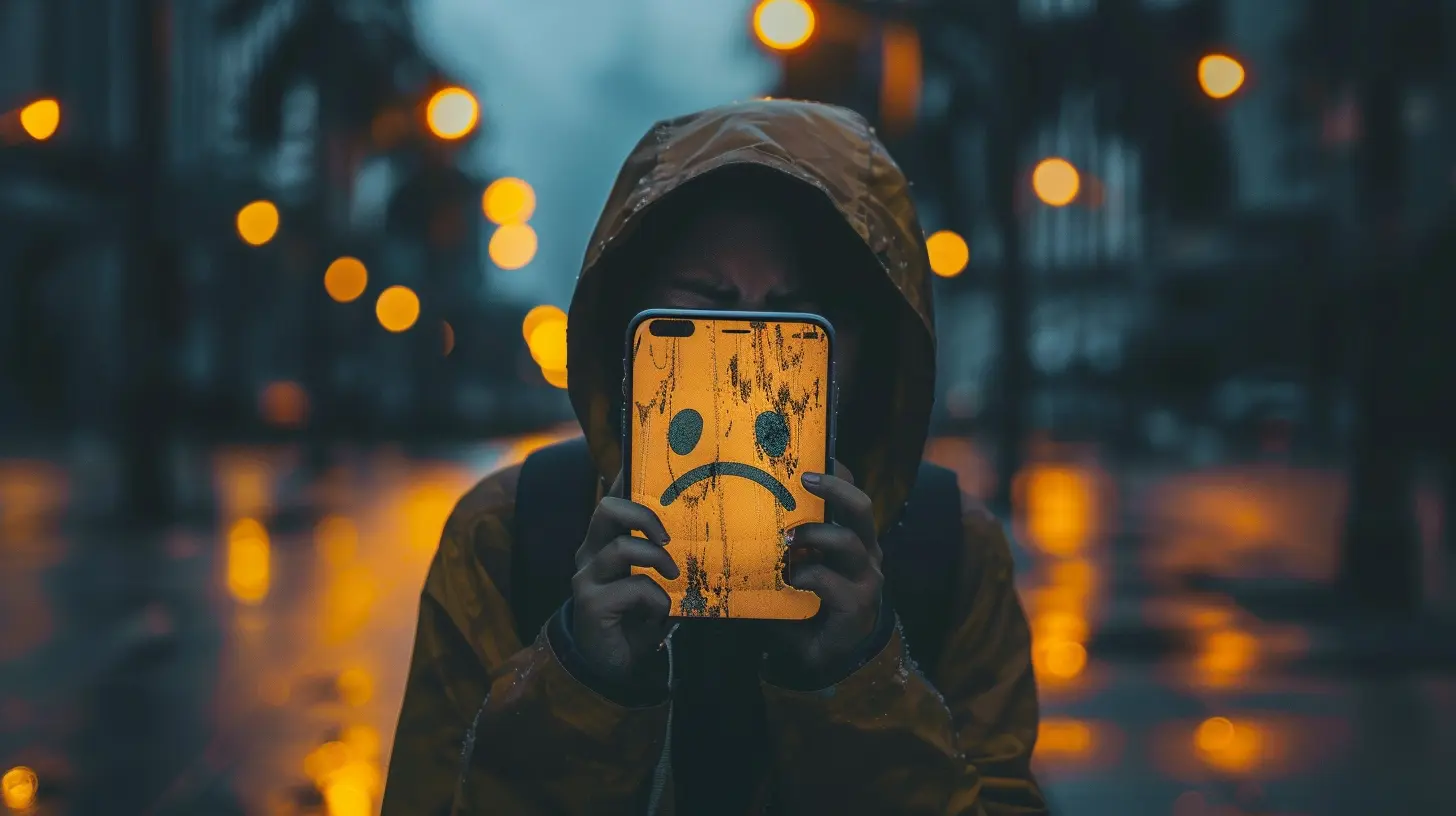
The Illusion of Connection
Let’s start with the basics. Social media was born to connect us — friends across continents, distant relatives, people you haven’t seen since high school. Sounds magical, right? But here’s the twist. It's connection without touch. It’s friendship without presence. Think of it as drinking saltwater when you’re thirsty. You’re consuming, but are you truly satisfied?When you're feeling low, scrolling through happy updates can feel like pushing your face up to a windowpane — watching life happen on the other side, locked out and left behind.
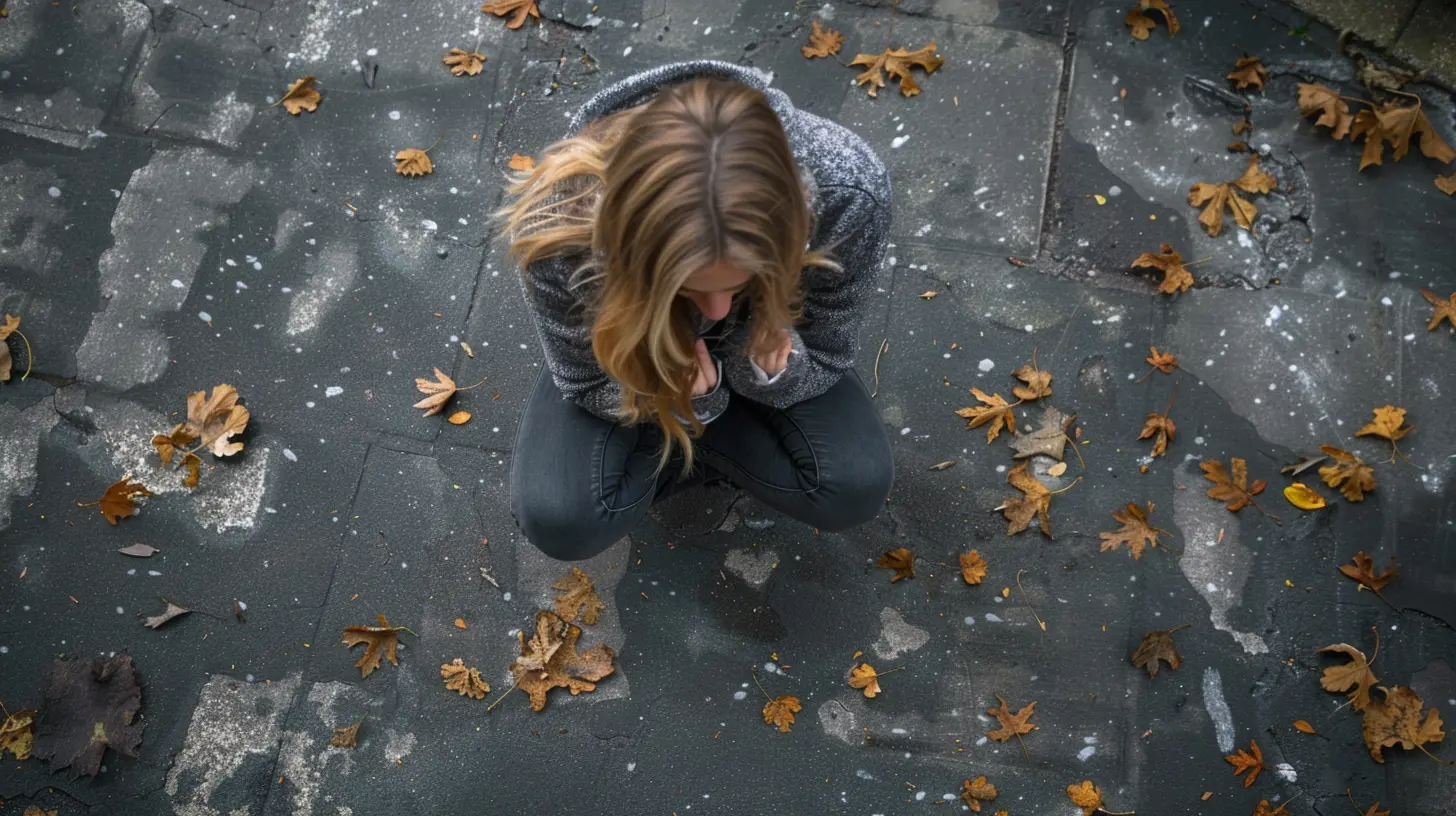
The Comparison Trap
Ever walked into a room full of people who seem smarter, better looking, more successful, and somehow always on vacation? That’s your Instagram feed on a bad day.We all compare. It’s human nature. But social media amplifies it to a deafening roar. And here’s where depression finds a quiet seat.
People post their highlight reels — the new job, the engagement ring, the six-pack abs. What they don’t post? The sleepless nights, the breakdowns, the therapy sessions. So while you're sitting there in sweatpants eating cereal at 10 P.M., it feels like you’re the only one drowning while everyone else is cruising on yachts.
That constant comparison can chip away at your self-esteem like waves eroding a cliff. Over time, you start believing that your life isn't good enough. That you aren’t good enough.
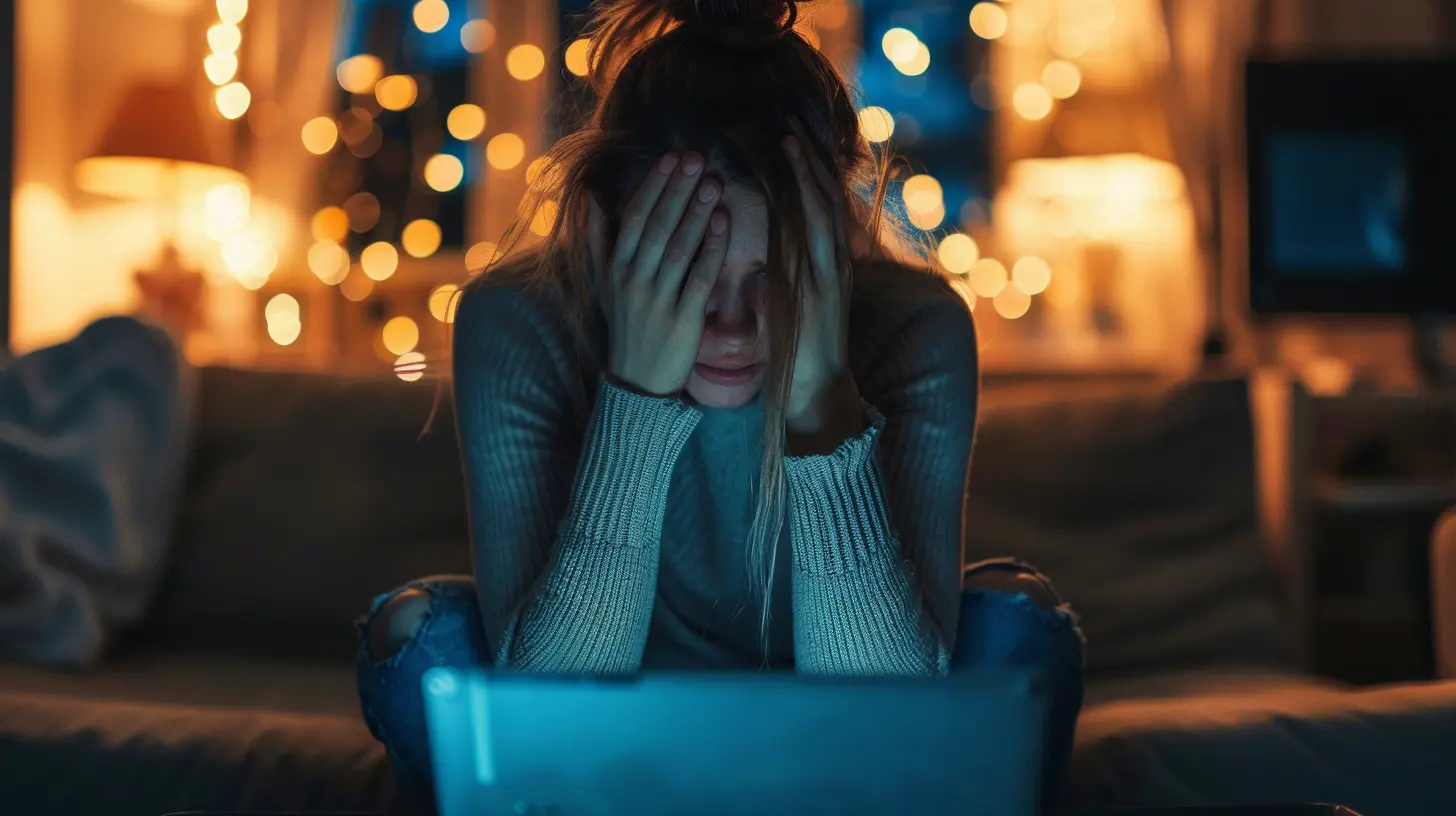
The Dopamine Loop of Doom
Let’s get a little sciencey — just a little, promise.Every like, comment, or share hits your brain with a micro-dose of dopamine, the feel-good chemical. It’s the same stuff that makes chocolate taste better and love feel euphoric. But here's the catch: it’s addictive. Like a slot machine for your emotions.
You post. You wait. You refresh. Maybe another like comes in. Maybe not. Maybe your best friend didn’t even comment.
And when you don’t get that validation… it stings. You feel invisible. Rejected. Less than.
This up-and-down emotional rollercoaster isn’t just exhausting — for someone already battling depression, it can be devastating.
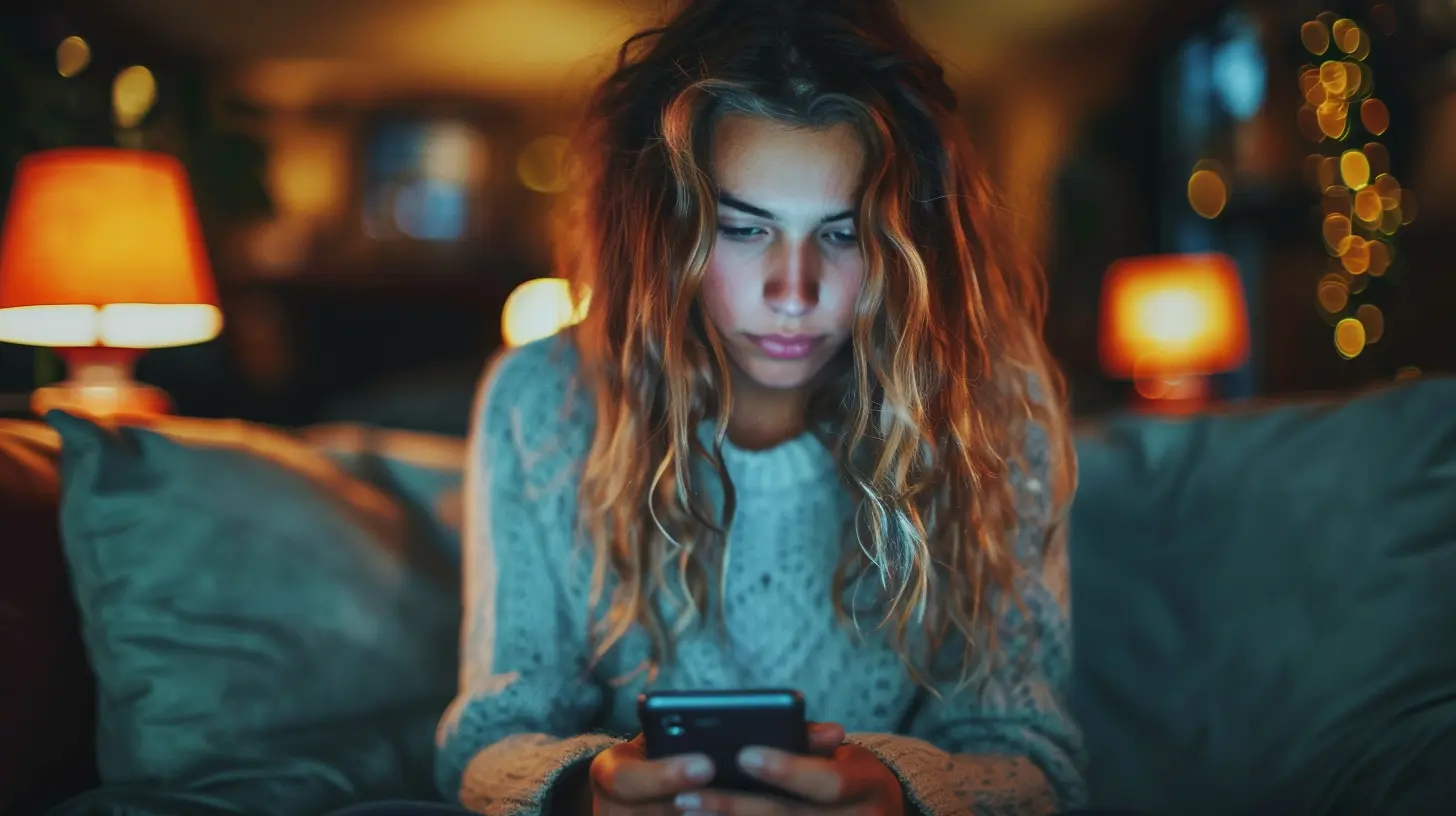
The Fear Of Missing Out (FOMO) and Isolation
You see your friends at a party — one you weren’t invited to. There's a photo of your coworker hiking, while you’re stuck in bed trying to muster the energy to shower.FOMO hits like a ton of bricks.
It whispers, "You’re missing out." Louder still, "They didn’t think of you. Maybe no one does."
What follows is a deepening sense of loneliness. Depression feeds off that — turning a simple photo into an existential gut punch.
Ironically, the more you scroll, the more isolated you can feel. It's like standing in a crowded room and still feeling completely alone.
Cyberbullying and Toxicity
Let’s not sugarcoat it: the internet can be a nasty place.From subtle digs to outright hate — comments on appearance, beliefs, gender, or mental health — social media can be a minefield. And when you're already feeling raw inside, even one cruel comment can feel like a dagger.
Cyberbullying doesn’t need fists — it stings through screens. And it doesn’t just affect teens. Adults aren’t immune either. The shame, embarrassment, and humiliation from online cruelty can act as a heavy anchor, dragging you farther into a depressive state.
Sleep Disruption and Mental Fog
Raise your hand if you’ve ever stayed up too late scrolling TikTok or checking Twitter one last time.Guilty, right?
Sleep is your brain's way of healing. Of recharging your emotional batteries. But social media is like junk food for your mind — addictive and hard to stop consuming. Blue light messes with melatonin (your sleep hormone), and mindless scrolling keeps your brain on high alert. You’re feeding your mind, but not nourishing it.
Lack of sleep sucks the color out of your days. You feel foggy. You can’t focus. Your mood sours. And depression? It thrives in tired minds.
Unrealistic Beauty Standards and Body Image
Snapchat filters. FaceTune. Perfect angles. Makeup tutorials. It’s a world curated for perfection — and it’s distorting how we see ourselves.When you’re bombarded by images of flawless skin, tiny waists, and glowing smiles, it’s easy to feel like your reflection isn’t enough. And for many—especially young people—this can spiral into body image issues, eating disorders, and yep, deeper depression.
Your self-worth starts riding shotgun to likes and comments — and that’s a dangerous road to travel.
Echo Chambers and Negative Content Loops
Here’s the thing about algorithms: they feed you more of what you react to.So if you’re feeling down and you engage with sad or negative content, guess what? Your feed becomes a mirror to your melancholy. You get trapped in a digital echo chamber that constantly reminds you how bad things feel.
It’s hard to climb out of a hole when the walls keep showing you reasons to stay in.
The Pressure to Always Be "On"
Ever feel like your life has to be picture-perfect just to be post-worthy?That pressure to show up happy, successful, thriving — even when you're not — can be exhausting. It creates a disconnect between who you are and who you pretend to be online. That split can widen over time, making you feel like a fraud in your own life.
And that, my friend, is fertile ground for depression to grow.
What You Can Do About It
Okay, enough with the doom and gloom. Let’s talk about hope. Social media doesn’t have to be your nemesis. With a little mindfulness and intentionality, you can use it without letting it use you.1. Curate Your Feed Like Your Mental Health Depends On It
Because honestly, it does. Follow pages that uplift you, educate you, make you laugh. Unfollow anyone who makes you feel “less than.”2. Set Boundaries
Try a digital detox. No phone during meals. No scrolling an hour before bed. Use apps that track your screen time and limit your usage if needed.3. Be Real
If you’re comfortable, share your lows as well as your highs. Authenticity breaks the illusion and helps others feel less alone.4. Talk to Someone
Feeling overwhelmed? Reach out. Friends, family, a therapist. You don’t have to navigate this alone.5. Remember It’s Not Real Life
Social media is a highlight reel, not a documentary. What you see is a fraction of someone’s reality. Don’t compare your backstage to their front stage.Final Thoughts
Social media is a double-edged sword — dazzling yet dangerous. It can connect, but it can also isolate. It can uplift, but it can just as easily drag you down.If you're struggling with depression and finding that social media makes things worse, you’re not weak. You’re human. It's okay to step back, to unfollow, to delete the app for a while. Your mental health is more important than any viral moment or digital applause.
You deserve peace, joy, and real connection — not the empty echoes of a scrolling screen.
So take a breath. Look away. Look up. The real world, with all its flaws and wonders, is still out there. Waiting for you.
all images in this post were generated using AI tools
Category:
DepressionAuthor:

Jenna Richardson
Discussion
rate this article
1 comments
Zeth Gill
Thank you for shedding light on this important topic. It's crucial to recognize how social media can impact mental health. I appreciate the insights shared here and the reminder to be mindful of our online habits. Small changes can make a big difference in our overall well-being.
October 6, 2025 at 5:01 AM

Jenna Richardson
Thank you for your thoughtful comment! I'm glad you found the insights valuable. Small changes can indeed lead to significant improvements in mental health.
